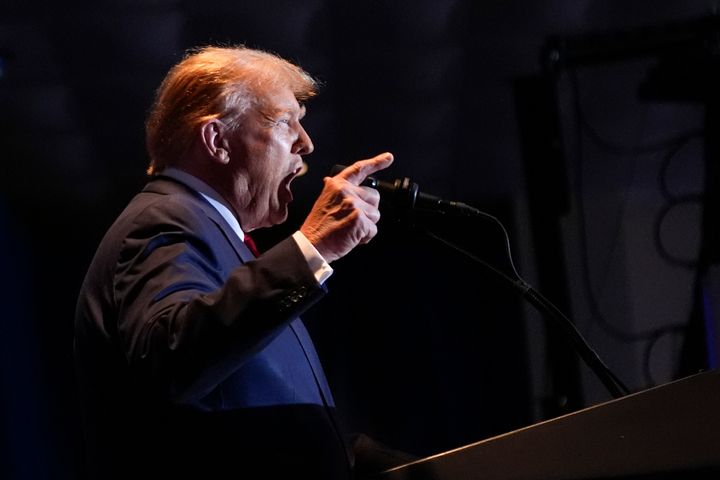
WEST PALM BEACH, Fla. — With American voters deciding to return Donald Trump to the White House, the task of blocking his autocratic impulses is now left to two groups that, to date, have shown little interest in doing so: congressional Republicans and the Supreme Court.
Trump has spoken about using the Justice Department and the military to go after political opponents and those he has deemed “the enemy from within.” Both would be abuses of power and possibly violate the law. Yet the job of blocking those and potentially other abuses by the former and soon-to-be president would fall to a Republican-controlled Senate, possibly a GOP House and a high court that may not be inclined to step in.
“Every Republican is going to be even more subservient to him,” said Joe Walsh, a former GOP representative who spent the final weeks of the 2024 campaign traveling the country on behalf of Democratic Vice President Kamala Harris to warn of the dangers of a second Trump term.
When Trump tried to extort Ukraine into essentially helping him cheat in his 2020 reelection bid and he was impeached by the Democratic House, only one Republican senator voted with Democrats to remove him from office.
A year later, after Trump tried to remain in power through a violent coup on Jan. 6, 2021 — an event that endangered the life of every member of Congress present that day — only 10 GOP House members and seven Republican senators voted in favor of impeachment and conviction.
The U.S. Supreme Court, meanwhile, in a ruling this summer gave Trump presumptive immunity from criminal prosecution for “official” actions he takes as president, and provided a broad definition of “official.”
Walsh, now an independent, said that Trump’s ability to win back a job he tried to hang on to by violating both laws and the Constitution sends a dangerous message to others in Walsh’s former party.
“Now I think you’ll see Republicans actively trying to help him subvert the Constitution,” Walsh said. “He just proved ‘I can try to overthrow the government and still be reelected.’”
Olivia Troye, a former Trump White House national security aide, agreed that Americans can depend on neither Congress nor the courts to stop Trump. A further danger, she said, is that his second administration will be stocked with officials and aides who are loyal to Trump but not necessarily to the Constitution.
In his first term, Trump — who did not expect to win the 2016 presidential election and had not really thought about what his administration would look like — wound up appointing top advisers who were largely mainstream Republicans and institutionalists. The political appointees he put in the top levels of federal bureaucracies were likewise establishment Republicans, as he had no large pool of applicants who were primarily loyal to him
That balance shifted through his four years in office, as original appointees were fired or resigned and were replaced with people more willing to carry out his will. But Trump did not truly appreciate his power as the chief executive until after he had lost his reelection bid in November 2020, when he fired his defense secretary and attorney general for a perceived lack of loyalty as Trump pushed to overturn the election results.
This time, Trump is almost certain to fill top national security and Justice Department positions with personal loyalty to him as a top criterion, both allies and critics said. As to the thousands of political appointment jobs in the agencies, The Heritage Foundation’s Project 2025 has been compiling and vetting lists of suitable, ideologically correct candidates for two years.
“The guardrails are no longer going to be there,” Troye said. “We’re assuming that, in a normal democracy type of world, that all of these other branches of government are going to hold the line against the executive branch. But we have to understand that in a Donald Trump presidency, that is not what we’re dealing with. He doesn’t care about the rule of law. He doesn’t abide by it.”
Disclaimer: The copyright of this article belongs to the original author. Reposting this article is solely for the purpose of information dissemination and does not constitute any investment advice. If there is any infringement, please contact us immediately. We will make corrections or deletions as necessary. Thank you.
